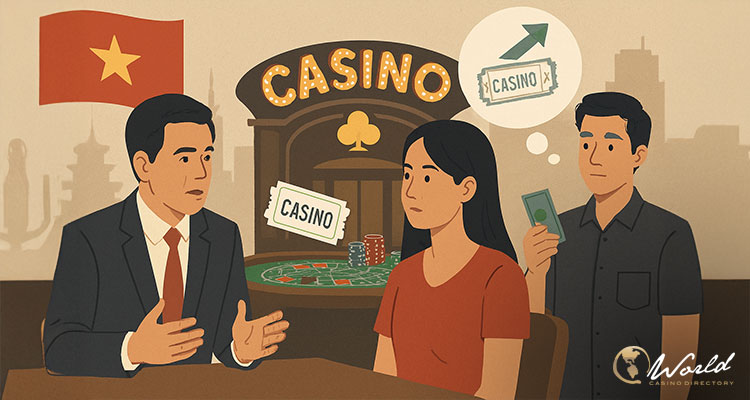Vietnam’s Ministry of Finance has introduced a proposal to increase casino entry fees for residents in an effort to simplify the process of verifying financial eligibility to gamble. The new policy would remove the need for locals to provide documentation of their income, a challenge that has proven difficult to manage in past gambling trials. Under the new proposal, the entry fees would rise by two to two and a half times. The daily entry fee for locals would be doubled to VND2.5 million (approximately US$95), while the monthly ticket price would increase to VND50 million (around US$1,900).
This proposal is part of an ongoing initiative to allow Vietnamese locals to gamble at certain licensed casinos, a practice that has been limited to a small number of venues since 2016. Previously, the government set financial criteria for locals wishing to participate in gambling activities, requiring them to prove a monthly income of at least VND10 million (around US$400). This requirement, however, has posed significant barriers for many potential players, especially when they were not prepared with the necessary documentation. According to the Ministry of Finance, this complicated process has led to difficulties for individuals who meet the income requirements but cannot provide the proper documents when visiting casinos.
Simplifying Financial Verification for Gamblers
To address these concerns, the Ministry of Finance has proposed a more straightforward solution: charging an entry fee that would serve as a proxy for the financial verification process. This new approach aims to mirror international practices, such as those seen in Singapore, where an entry fee system has been successfully implemented to manage access to gambling venues. This would eliminate the need for extensive paperwork and streamline the process for both casino operators and players.
In addition to the new fee structure, the proposed changes would also require casinos to collect and maintain customer data for at least five years. This measure is intended to ensure that players’ identities and gambling activities can be tracked, offering both greater accountability and an added layer of security for consumers. The draft regulations also call for stricter surveillance measures at casinos, requiring 24/7 monitoring of key areas such as gaming floors, vaults, and cash exchange counters. Footage from surveillance cameras would be retained for a minimum of 180 days and made available to authorities as needed.
Revisiting Local Gambling Access After a Pandemic Delay
This proposal also reflects ongoing efforts to reopen and expand gambling access for locals. A pilot program allowing Vietnamese citizens to gamble at the Corona Resort & Casino in Phu Quoc, a destination resort that had been part of the original trial, was suspended at the start of 2023 due to the pandemic. However, the government has now directed the Ministry of Finance to revisit this initiative and explore ways to extend it, especially after the initial trial period ended earlier this year.
The pilot had been limited to residents who met the financial requirements, but as noted, the documentation process created significant obstacles. As a result, the Ministry of Finance believes that increasing the entry fees would serve as a more practical means of ensuring that only those with sufficient financial means participate in the gambling activities, without adding unnecessary bureaucratic hurdles.
The proposed changes would also apply to new casino projects, such as the planned integrated resort in Van Don, located in Quang Ninh province. This development has been approved with a minimum investment requirement of US$2 billion, and the casino will be required to meet stringent security standards, including the installation of extensive surveillance systems.
According to VnExpress International, the Ministry of Finance has indicated that, beyond Phu Quoc, it is considering extending gambling access to other major casino resorts in the country, provided they meet the regulatory standards outlined in the draft decree. These standards include the collection of player data, as well as compliance with surveillance and security protocols. The government also intends to ensure that casinos are integrated into large-scale tourism and entertainment complexes, further promoting tourism as part of a broader economic strategy.
In the coming months, the Ministry of Finance will continue to gather feedback from the public and stakeholders as it finalizes the legal framework for these changes. The proposal, which has already received approval from Vietnam’s Politburo, represents a significant shift in the country’s approach to local gambling, and its implementation could open the door to broader opportunities for Vietnamese citizens to participate in the country’s growing casino and gaming market.


